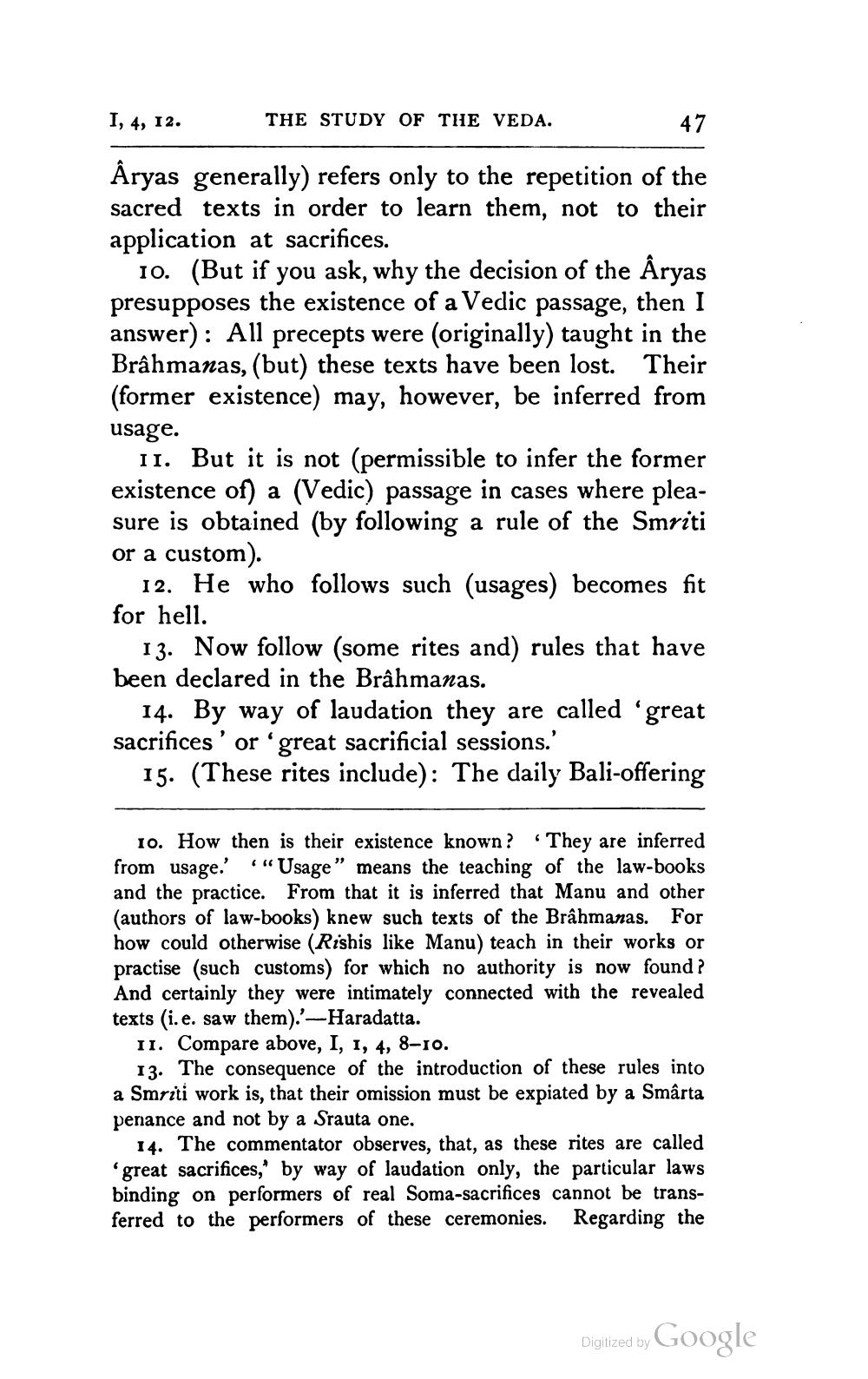________________
1, 4, 12.
THE STUDY OF THE VEDA.
47
Åryas generally) refers only to the repetition of the sacred texts in order to learn them, not to their application at sacrifices.
10. (But if you ask, why the decision of the Aryas presupposes the existence of a Vedic passage, then I answer): All precepts were (originally) taught in the Brâhmanas, (but) these texts have been lost. Their (former existence) may, however, be inferred from usage.
11. But it is not (permissible to infer the former existence of) a (Vedic) passage in cases where pleasure is obtained (by following a rule of the Smriti or a custom).
12. He who follows such (usages) becomes fit for hell.
13. Now follow (some rites and rules that have been declared in the Brâhmanas.
14. By way of laudation they are called 'great sacrifices' or 'great sacrificial sessions.'
15. (These rites include): The daily Bali-offering
10. How then is their existence known? They are inferred from usage.' ""Usage” means the teaching of the law-books and the practice. From that it is inferred that Manu and other (authors of law-books) knew such texts of the Brâhmanas. For how could otherwise (Rishis like Manu) teach in their works or practise (such customs) for which no authority is now found ? And certainly they were intimately connected with the revealed texts (i.e. saw them).'-Haradatta.
II. Compare above, I, 1, 4, 8-10.
13. The consequence of the introduction of these rules into a Smriti work is, that their omission must be expiated by a Smarta penance and not by a Srauta one.
14. The commentator observes, that, as these rites are called 'great sacrifices,' by way of laudation only, the particular laws binding on performers of real Soma-sacrifices cannot be transferred to the performers of these ceremonies. Regarding the
Digjized by Google




